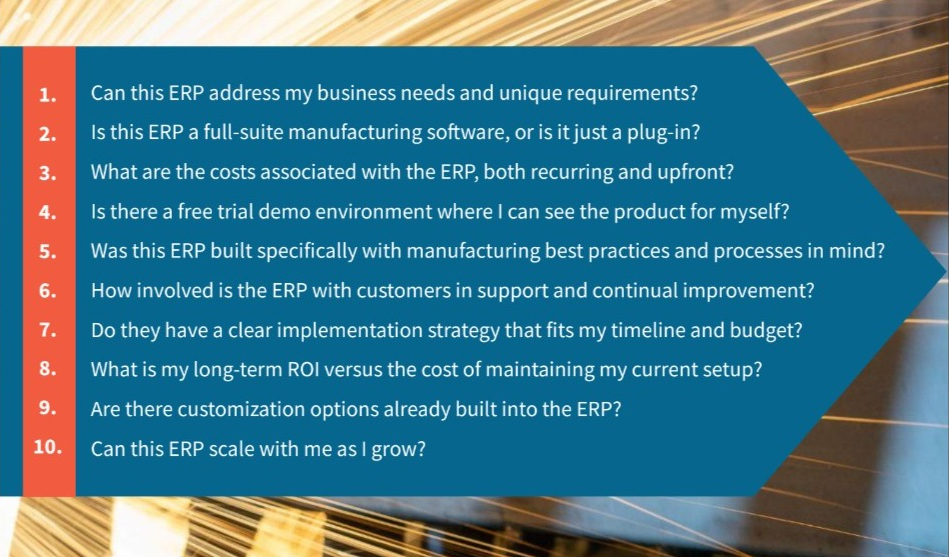How to Pick an ERP
Finding the right ERP system for your SMB manufacturing business can be tough. With all the noise, how do you know who to listen to? A Google search nets you a crowd of paid ads, directories are outdated and confusing, and third-party consultants are expensive. There’s got to be a better way to find an ERP than happening upon one at a trade show.
You can trust yourself to find your own ERP system- you already know the things an ERP needs to prove to you.
The most important thing an ERP needs to prove to you is that they can be trusted. Make sure you’re not falling for slick marketing tactics by running a background check on your potential partner. Ask for customer referrals, and be ready with a list of real questions to ask, such as “Who will help me implement this ERP?”, and “How does the ERP company support or interact with that process?”
Once you know a candidate is trustworthy, two big questions remain: Does this ERP support your basic business functions, and does this ERP adequately address your most pressing pain points?
The ERP system you choose needs to have a plan to handle your critical business operations. Standard ERP platforms typically focus on and adhere to manufacturing and business best practices, and will require some level of process adaptation on your part. Sales and consulting teams should be direct and upfront about these potential pain points.
Occasionally, your specific industry or vertical has a unique or niche need that the ERP does not fully support out of the box. These are identified as software gaps, and should be expected. The real question lies in how the ERP provider responds to and addresses these gaps. Can they provide a clear scope of work on what would be required? Can they show how this development would unlock the ROI found in the other inherent strengths of the system? This could be a long-term play, but it needs to be demonstrated in the sales process.
ERP implementations are too costly and too risky for your business to let an ERP salesperson woo you with big promises they can’t back up.
What’s the story look like once you’re on the hook? How does this ERP handle support, field development requests, customization, and honest customer feedback? The ERP provider needs to demonstrate the ability to understand your unique needs and processes so that they adequately guide you through a successful implementation and in long-term ongoing support.
After you’ve confirmed that a provider is trustworthy and capable of handling your critical business operations, it’s time to assess whether they can deliver the third and final criteria: ROI. What value does the ERP provide at the cost point? Evaluate your ROI to the 5 year mark, since ERP ROI often does not happen in the first year. Use standard considerations: time savings per department and holistically, the recurring cost, upgrade costs, support, and soft costs - such as IT and ERP management, and hardware for a local server. Review your total ROI, consider whether the investment is worth the growth opportunity, and make the decision that is right for you.
To help keep you on track, consider using a checklist, like the one curated below:

Ready to search for the right ERP for you? Start with a free, monthlong trial of Cetec ERP!